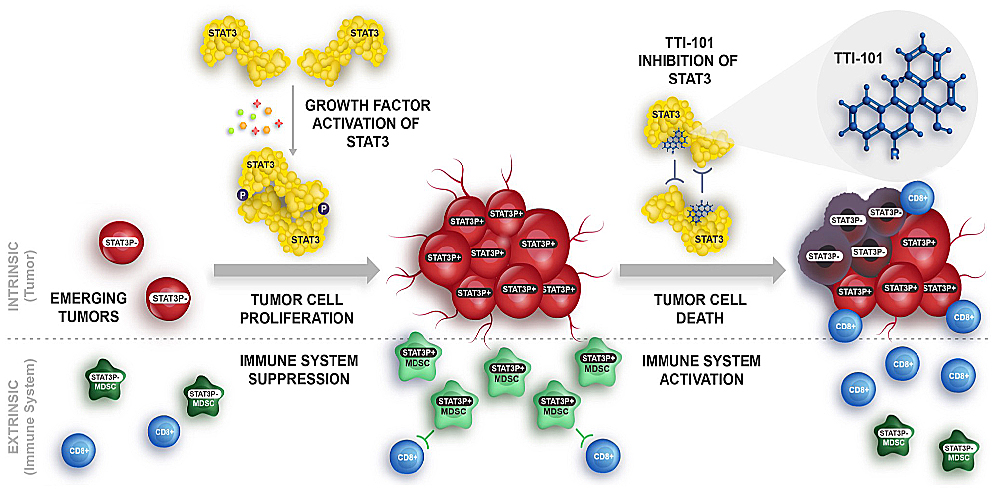We use cookies to ensure that we give you the best experience on our website. By using this website you agree to the Privacy Policy and Terms of Use.
Our Science
Science
STAT3 is a key regulatory protein positioned at the intersection of many signaling pathways integral to the survival and immune evasion of cancer cells as well as to the pathogenesis of many inflammatory and fibrotic diseases.
Cancer
STAT3 has long been recognized as a prime target for oncology. Given the integral role of STAT3 in both tumorigenesis and immune suppression, inhibition of STAT3 signaling is expected to have a synergistic therapeutic effect on cancer cells.
Tvardi has developed TTI-101, an orally delivered, small molecule, direct inhibitor of STAT3. TTI-101 has demonstrated efficacy in a variety of tumor models including head and neck, lung, breast, and liver cancers. Currently, TTI-101 is under investigation in multiple clinical trials.

Chronic Inflammation and Fibrosis
The pro-proliferative and pro-survival activity of STAT3 is also a central mediator for chronic inflammation and fibrosis. For example, a single allelic knockout of STAT3 inhibits fibrotic phenotypes in multiple models of fibrosis.
STAT3 inhibition with Tvardi’s compounds has demonstrated reversal of fibrosis and restoration of normal function in models of idiopathic pulmonary fibrosis, non-alcoholic steatohepatitis and scleroderma.
Currently, TTI-101 is under investigation in an Idiopathic Pulmonary Fibrosis Clinical Trial.